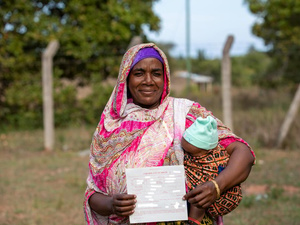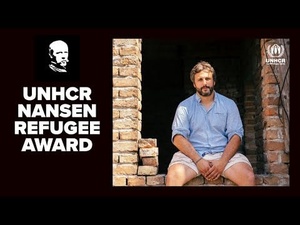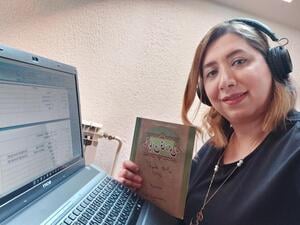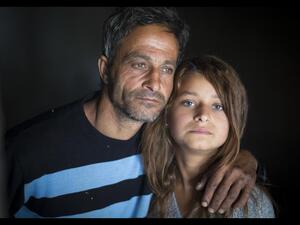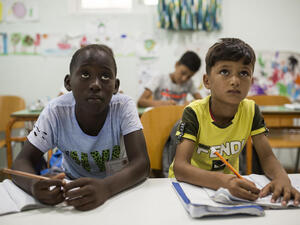Kosovo Crisis Update
Kosovo Crisis Update
Albania
The most critical situation is in Kukes, where the town is overflowing with more than 100,000 refugees. After a huge influx on Friday and Saturday, new arrivals slowed on Sunday. The border was closed after the announcement that Yugoslavia was breaking off diplomatic relations with Albania, and then reopened on Monday morning. However, no new refugees were reported to have arrived as of mid-morning on Monday. Monday morning, UNHCR staff reported that poor weather was hampering helicopter flights ferrying relief goods from Tirana to Kukes.
Moving refugees from this sensitive border area to other parts of the country remains a top priority. Around 5,000 per day can be moved out. In the meantime, shelter and sanitation in Kukes are key concerns. UNHCR has established a Water and Sanitation Coordination Cell in Kukes in order to respond to operational needs and to maximize the limited human and material resources available in the Kukes region, as well as the Tropoje and Has districts. All refugee camps have systems providing water on a 24 hour basis. A minimum of seven litres of water per person per day is available and efforts are being made to increase this per capita amount.
All refugee sites have been supplied with latrine facilities, although the numbers remain insufficient. The NGO Tear Fund is working with a local carpenter's cooperative in Kukes to increase the construction of latrine facilities. UNHCR is providing 10 metric tons of lime to disinfect fields around the town of Kukes which have been used as open area toilets.
Rubbish collection is underway, with UNHCR providing hundreds of empty oil drums to be used for collection in the refugee camps as well as in the town of Kukes. The Water and Sanitation Coordination Cell has also implemented a "tents for trailers" programme, whereby refugee trailers, which are being used as shelter, are being exchanged for two tents. The trailers are then converted into rubbish collection facilities, facilitating the loading of transport trucks which take the rubbish to the municipal dump in Kukes.
FYR of Macedonia
There were limited movements of refugees into Macedonia on Sunday, mirroring the situation in Albania. Only around 25 refugees arrived in Blace during the day. New arrivals reported that a packed train was turned back from the border and two busloads of refugees, reportedly from Mitrovica, were diverted away from the border as well. It seems that the Yugoslav border authorities are only allowing Kosovars holding passports to cross the border. One new arrival reported that it was her second attempt to cross. On her first attempt she had been stopped by Yugoslav border guards as she didn't have a passport. Finally she managed to cross after paying a substantial bribe.
On Sunday UNHCR delivered relief supplies to the mountain village of Male Malina, east of the General Jankovic road, where up to 3,000 refugees arrived on the weekend. The new arrivals are staying in Male Malina and surrounding villages where many have extended family members.
Refugees who arrived at the Jazince crossing on Saturday, 17 April, were taken by bus to the Neprosteno and Bojane camps and to the Radusa Collective Centre. On Sunday evening an additional 500 refugees who had arrived in the no man's land at the Jazince crossing in the early hours of the morning were finally allowed to enter. They were mainly from the areas of Urosevac and Gnjilane and said that they had been expelled from their homes, which had been subsequently set on fire, 10 days ago.
With more new arrivals expected, there is a pressing need to provide more accommodation capacity for new arrivals. The Stankovac 1 and Stankovac 2 camps have reached their maximum capacity. Attempts to expand the camps have been frustrated by protests by local farmers. Negotiation for new sites is underway at the highest level.
The High Commissioner has dispatched her Deputy, Gerald Walzer, to Macedonia for high level discussions on the refugee problem. UNHCR is urging the Macedonian government to keep its borders open to refugees fleeing Kosovo and to allow the expansion of existing camps or the creation of new camps. For its part, UNHCR is making every effort to mobilize international assistance and to expand the Humanitarian Evacuation Programme.
Republic of Montenegro
There were only around 500 new arrivals during the weekend. The profile remains the same as previously: Kosovars are coming on foot, through mountain paths, entering at the municipality of Rozaje.
UNHCR met with the mayor of Rozaje to try to identify new sites to house the displaced. UNHCR staff were told that no new sites may be established, due to the Yugoslav military presence in the area. UNHCR staff have noted an increased Yugoslav military presence in the municipality, and an increased number of displaced Kosovars stopped by military for identity checks.
The authorities want the displaced to be moved out of Rozaje as soon as possible. Meanwhile, in an effort to avoid confrontation between military, local population, and the displaced, the authorities of the municipality have banned the serving of alcohol in public cafés.
Efforts to assist more than 20,000 displaced in Rozaje continue. A Médecins du Monde survey of 12,000 of the displaced in Rozaje found that 41% are under 15 years of age, and 20% are under 5 years old.
Distribution of UNHCR commodities brought in from Belgrade is starting today, including baby parcels, clothing, shoes, jerry cans, blankets and cooking sets, as well as tents and mattresses.
A soup kitchen with stoves provided by UNHCR has been equipped at the Dekor II site, and the kitchen will operate as of today. At the Dekor I campsite, the kitchen shed is scheduled for completion on Tuesday. Sanitation remains a top priority: ICRC is completing latrine construction at the Dekor II campsite. Construction of showers at both sites is scheduled for this week and garbage collection is being organized.
UNHCR-IOM Humanitarian Evacuation Programme
In view of the number of new arrivals, UNHCR is stepping up the evacuation programme and has activated a number of offers from European countries. On Sunday, 18 April, 688 refugees were flown out of Skopje. Belgium received 340 refugees on two flights and France took in 348 refugees on 3 flights.
Several hundred Kosovars will fly to Poland today, and France, Belgium, Austria and Turkey have scheduled evacuation flights for Tuesday, 20 April.


